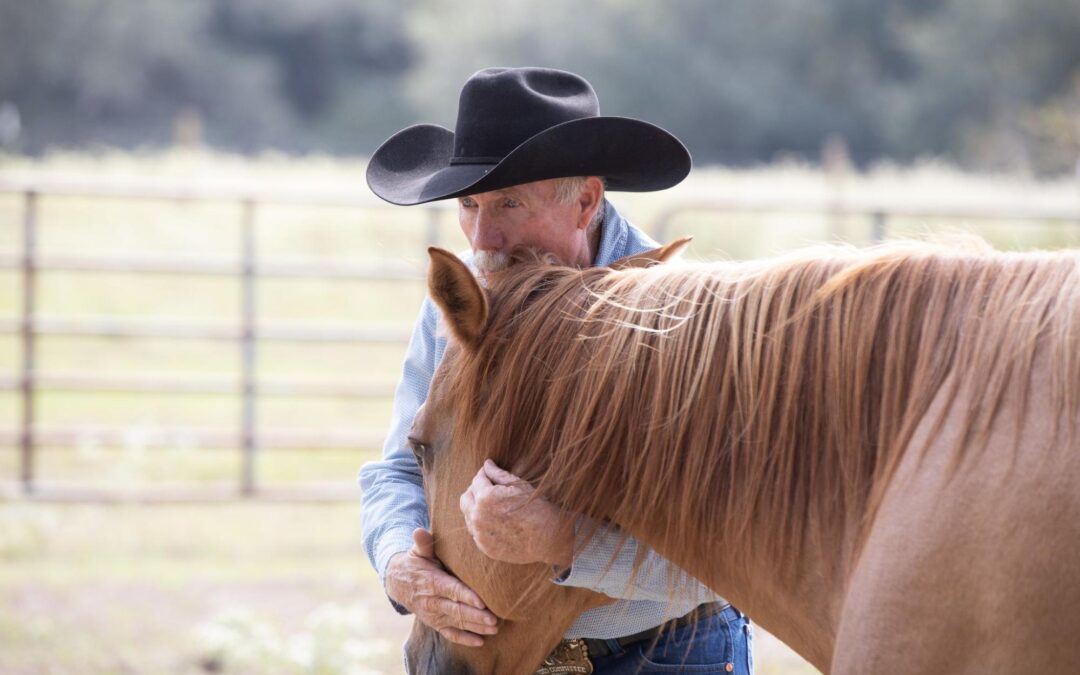A dear friend of mine occasionally takes one of her horses to clinics with well-known horse clinicians. Later, she’ll share what she observed so we can talk through which parts align with Natural Lifemanship principles and which do not.
One day, she told me that a clinician mocked someone in the audience by calling them a “horse kisser.” That phrase lodged in my mind. After much reflection, I have come to a conclusion I hold with pride: I am, without apology, a horse kisser.
The Moment That Changed Everything
I was not always this way. In my younger years, the idea of kissing a horse would have horrified me. I had already trained many horses, and the thought of offering affection seemed as odd as kissing a hammer.
Back then, a horse was simply a tool to get a job done. Like a hammer, its usefulness depended on how well I controlled it. A hammer is incapable of driving a nail without me, and I used to believe horses were the same. Affection, I thought, had no place in performance.
But over time, I noticed something that shifted my perspective entirely. Horses did not actually need me to control them to run, stop, turn, or even back up. I even saw horses working cattle on their own, seemingly just for fun.
I have yet to see a hammer drive a nail without me. Sometimes I’m a bit slow, so this was my first clue: horses have awareness, instincts, and intelligence that a hammer will never possess.
Unfortunately, many trainers still treat horses as if they are no more conscious than tools. They often disguise control as “leadership.” I once thought this way too until I began to understand how a horse’s brain works.
Of Horses and Of People
The turning point came when I became curious about the way a horse’s brain develops. Actually, my learning started with people.
At the time, we were working with at-risk kids, and I wanted to understand what gets in the way of healthy brain development. The list is long, but one truth stood out: growth requires the right balance of nurture and structure.
Dr. Karyn Purvis put it this way:
“If they need nurture and you offer structure, they will never feel safe. If they need structure and you offer nurture, they will never grow.”
Horses are not human, but their brains develop through the same kinds of sensory input, in the same sequence, as any mammal. My role is to provide both nurture and structure: nurture so they feel safe with me, and structure so they can learn and grow.
I am a Horse Kisser, and I Wear that Title with Pride
That nurturing presence—the connection, affection, and attunement—is what many trainers dismissively call “horse kissing.” In truth, it was the missing piece in my early training.
The reality is simple: I cannot be safe around my horse if my horse doesn’t feel safe around me. Nurture only becomes a problem if it’s the only thing you offer.
So yes, I’m a horse kisser. I’ve tried kissing my hammer, but it hasn’t had much effect. I also kiss my kids and grandson, and I’ll never apologize for that either.
Connection, not control, is what makes both horses and humans truly thrive.
To learn more about the science and art of relationships and connection, check out the Fundamentals of Natural Lifemanship, now with an all new LIVE training component! Learn more at www.naturallifemanship.com/fundamentals.



Recent Comments